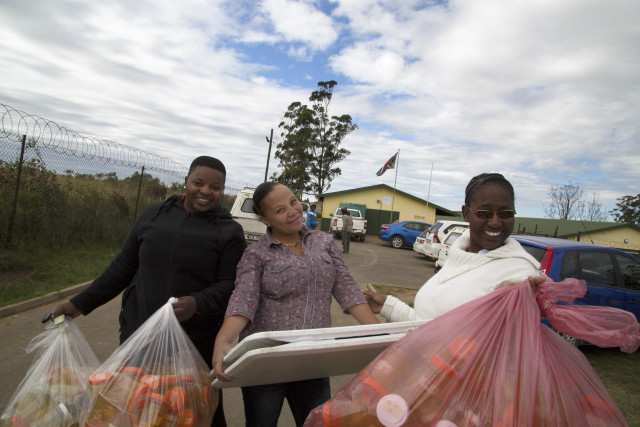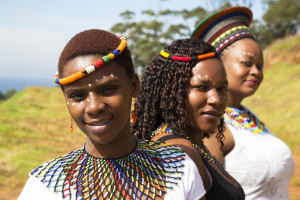Join us

Commitment to collaborative publishing
We do multidisciplinary research on neglected poverty-related conditions. Patients may have difficulties in getting face-to-face consultations for multiple reasons. Furthermore, there may be manifold hurdles at primary health care level where providers may be overwhelmed, under-resourced, and untrained. Specialist service may be out of reach and sometimes also unqualified to handle neglected poverty-related conditions.
Using a multidisciplinary framework we will combine user aspects (patients, families and health care professionals) , persuasive technology and state-of-the-art diagnosis and management. We aim to contribute to improved quality of medical care, reducing the times between research, diagnosis, therapy and prevention – especially focused on quality medical services to remote and poor locations. This requires highly collaborative, cross-professional research approaches where students and senior scientific staff go beyond their academic degree for long-term and sustainable implementation. This means you must be committed to publish your results, in a collaborative fashion, and give back to the community – even years after your work is complete.
You will contribute to ground breaking implementation and research that will affect the health of millions of African women. You will be working in an international/South African work environment and will get to know other cultures, South African and African research history. The international work experience will add value to your future and can open doors to new opportunities. Accommodation for non-South Africans (for the first 3-6 months in SA) is only 300 metres from the beach. Previously, people with the following professions have participated:
- Medical doctors and medical students
- Laboratory personnel
- Nurses, public health workers, social workers, social scientists
- Administrators, development management officers and social economists
- Media and communications people
- Logisticians and drivers
Every professional must be a “multi-tasker” and must be willing to help out where needed. General requirements:
- Flexible, able to take direction and accept feedback
- Fluent in English, both spoken and written
- Driver’s license
- Team work
- Previous experience with fieldwork in Africa would be great, but is not necessary.
Application should contain
- 1-page letter of motivation. Please indicate the possible time period(s) for e.g. the entire degree/ overseas stays etc.
- CV should contain
- ‘rustic’ experiences (such as back-packing, hiking, rural childhood, farming et.c.)
- multi-cultural experiences
- at least two references
- facts about your previous work/research (if any) such as
- community liaison (e.g. which gender and age group(s))
- use of computer programmes
- scale of outreach activities/experience with individuals (e.g. number of patients/cases/interviews and what was done for each)
- analysis of data (how, e.g. statistical methods, transcription, translation, mapping etc.)
You may have to submit
- Scanned certificates
- A link to your previous thesis (if applicable)
- Certificate preparatory course 1 HSP (2 hours) (all) – also useful for other jobs
- Certificate preparatory course 2 GCP (6 hours) (all) – also useful for other jobs
- Confirmation that you’ve read the document “Data use and publications” before the interview
- Confirmation that you are committed to co-publication in a multi-disciplinary fashion
Please write in English and send to Dr Pavitra Pillay and Professor Eyrun Kjetland ([email protected], [email protected]).
Pre-interview preparation
After the interview
- Academics please sign, scan and send the document “Data use and publications”.
- Please send originals and notarised copies.
- Proof of qualification and experience must be translated into English (may be sent later at an agreed time).
Expenses
We can be involved in the application process for travels.
Volunteers
We often have volunteering opportunities in Europe or in Africa. Volunteers make invaluable contributions and are a treasured resource. Should you wish to volunteer your time with BRIGHT Academy you may be asked to assist our work through:
- undertaking research support or research tasks
- raising funds
- organising meetings
- supporting human resources, website or accounting
- loaning your specialist expertise to an area of our work
Volunteers are generally recruited for 2 to 12 months and the tasks will be varied, sometimes menial, always multi-cultural, always learning experiences for flexible open-minded people. The volunteer may apply for travel and food expenses together with one of the seniors in the project – that too is a good learning experience.
Being a part of a collaborative project – Imperialism check list
Checklist for all: The last decades a new trade has emerged of harvesting experiences, degrees or publications for first world benefit. First world professionals will visit exotic study sites, they need help to get started, help to implement work and research; they will enjoy the hospitality, the weather, and the adventure. They will use goodwill, infrastructure and permits.
- Make sure you are not a burden in any way
- Share the financial burden (e.g. through your own applications)
- If you want to give something you must ask the seniors what is needed
- Give more than you take
Checklist: “BRIGHT Academy is doing groundbreaking work and it must reach the larger community. Therefore with BRIGHT Academy, your focus will be publishing rather than writing for ‘the dusty shelves’ of your institution.” Researchers will collect data for a worthy cause and implementers must document and report what they have done. However, many publish interesting results in journals that are not available to African health professionals and visiting scientists work only to further only their own careers or their home institutions. It is the responsibility of the academics in this project to:
- Contribute to the work beyond your own data collection
- Make sure that the information is given back to those that need it
- Publish so that information is accessible to those that need it in scientifically renowned journals
- Publish good work, reliable, sound data within reasonable time
- Recognise that you can only do this because you are part of a team
- Invite others to participate as equal partners
- Ensure that the data you have collected is useful
- Ensure that your unfinished work can be inherited easily
- Ensure that your needs for data and information are fulfilled before you leave
- Make a plan in case you need anything after departure
There are three “codes of conduct” that researchers in BRIGHT (and Africa) must adhere to:
- The universal codes of research (Vancouver regulations and IRBs, National Boards of Ethics etc) must always be adhered to.
- Secondly, in pre-colonial disadvantaged scientific communities we must take care not to become exploiters just because we have vantage points to do so (money, time, opportunities, institutional support, access to computers, literature, night-time electricity etc. etc. ). We cannot harvest data for European careers only. It is not right to have an all-white authorship on articles that were generated from African problems. It is our duty to involve local collaborators and provide opportunities at an early stage of the work so that the code is not breached. There are many ways to promote this, speak to the most competent (in this issue) supervisor.
- The collected data must be useful to the locals. We have a responsibility to give this information back – in some way – to Africa. This is particularly important if we identify “new” (in any sense of the word “new”) issues that may affect Africans. It is not acceptable to test medication on Africans for a brief time if there is no intent to make it (realistically) available to Africans. The local African scientists can help us manage these ethical dilemmas.
Notice for academics
For non-medical students: If you do not have Bachelor’s or Honours. Before getting in touch with BRIGHT Academy please explore if you are eligible for a Masters programme in your home country through special dispensations on experience and age.

